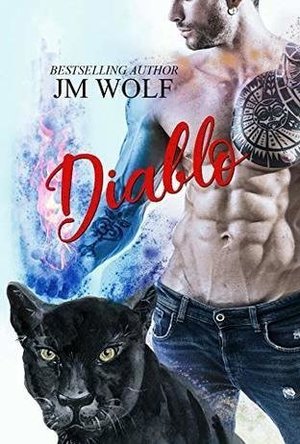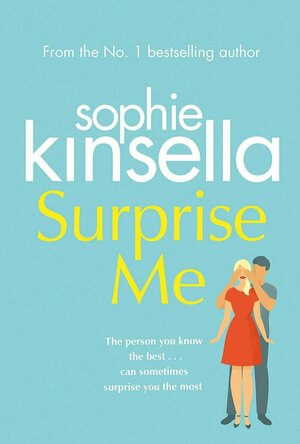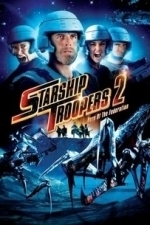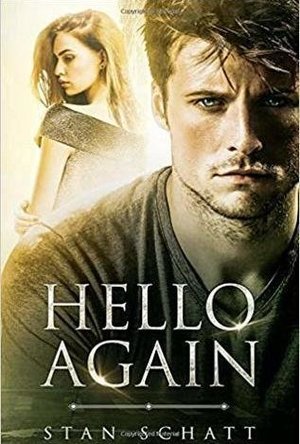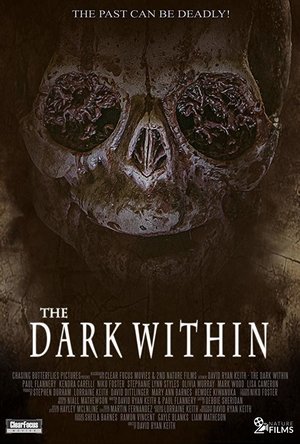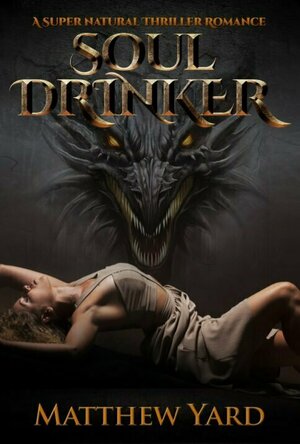Search
Search results
Debbiereadsbook (1669 KP) rated Diablo (The Gifted Ones #2) in Books
Apr 11, 2019
Far darker a read, but brilliant!
FREE, March 2019
We met the legend of Diablo in book one, Frostbite, but you don’t need to have read THAT book for this one to make sense. It would benefit you to, though. You need to know about this pack and how it works and how they look after their own.
Years ago, Antonio, a jaguar shifter and mage, made an angry decision, and it cost him. Now unable to channel his anger into anything other than fire, he is the legend Diablo, a far more dangerous one than Frostbite would ever be. But a single glance all those years ago also cost him. It cost him the price of his soul, because a gaze into the eyes of a child made Diablo see, SEE what he has become and how he does NOT want to be. That child was Trace, a wolf shifter, and Diablo had just slaughtered his whole village. Trace and his brother Casey managed to escape. But now, their past has come back, not as the devil, but as an angel who keeps saving Trace, who Trace now knows as his mate. Can the pack accept Antonio, even if Trace will have him? Can Antonio keep his anger at bay, or will he be consumed by his own flames?
I love a bad boy turned good, I really do, and Antonio is the epitome of the bad boy turned good! I loved this one!
A far DARKER read than Frostbite, this one. Here’s why. While Frostbite KNEW what he was doing when he killed, he did it in self-defence. Diablo, however, does NOT know why he did what he did. He blacks out, coming to only when his fire has died out, and his anger gone. He doesn’t remember killing all those people, and the poor cat carries a LOT of souls on his shoulders that he has no recollection of.
But he’s trying, he really is. Not only for Trace, but for him own soul. He does not want to be like this anymore, he wants to be free of the all consuming rage, and fire that has been his life for four hundred years. Forces are working against him though, and it takes a visit from a psychic, Remy, to dig deep into Antonio’s mind, and for TRACE to visit deep into Antonio’s mind, for Antonio to finally be free.
There is a lot of other stuff happening here too. Cyrus has his baby. A friend from Cyrus’ past causes . . problems . . (for want of a better word!) for Tobias and Bruno, the pack Beta. Those two have their work cut out for them with Tim, they really do. Their 3 way book is next. We also get just what Tobias is, and what that means for the pack, for Tim and his child and any future children there might be with Tobias. Typing this up, I’m also questioning who might be paired with Remy now he’s decided to stay with the pack. Todd also gets a book. OHHHHHHHHHHHHHH! Maybe I’m putting two and two together and getting five, but who cares!
Will there be an earth and air type mage/shifter? I dunno, don’t really mind who or what comes next, but I WILL be reading them!
5 stars
**same worded review will appear elsewhere**
We met the legend of Diablo in book one, Frostbite, but you don’t need to have read THAT book for this one to make sense. It would benefit you to, though. You need to know about this pack and how it works and how they look after their own.
Years ago, Antonio, a jaguar shifter and mage, made an angry decision, and it cost him. Now unable to channel his anger into anything other than fire, he is the legend Diablo, a far more dangerous one than Frostbite would ever be. But a single glance all those years ago also cost him. It cost him the price of his soul, because a gaze into the eyes of a child made Diablo see, SEE what he has become and how he does NOT want to be. That child was Trace, a wolf shifter, and Diablo had just slaughtered his whole village. Trace and his brother Casey managed to escape. But now, their past has come back, not as the devil, but as an angel who keeps saving Trace, who Trace now knows as his mate. Can the pack accept Antonio, even if Trace will have him? Can Antonio keep his anger at bay, or will he be consumed by his own flames?
I love a bad boy turned good, I really do, and Antonio is the epitome of the bad boy turned good! I loved this one!
A far DARKER read than Frostbite, this one. Here’s why. While Frostbite KNEW what he was doing when he killed, he did it in self-defence. Diablo, however, does NOT know why he did what he did. He blacks out, coming to only when his fire has died out, and his anger gone. He doesn’t remember killing all those people, and the poor cat carries a LOT of souls on his shoulders that he has no recollection of.
But he’s trying, he really is. Not only for Trace, but for him own soul. He does not want to be like this anymore, he wants to be free of the all consuming rage, and fire that has been his life for four hundred years. Forces are working against him though, and it takes a visit from a psychic, Remy, to dig deep into Antonio’s mind, and for TRACE to visit deep into Antonio’s mind, for Antonio to finally be free.
There is a lot of other stuff happening here too. Cyrus has his baby. A friend from Cyrus’ past causes . . problems . . (for want of a better word!) for Tobias and Bruno, the pack Beta. Those two have their work cut out for them with Tim, they really do. Their 3 way book is next. We also get just what Tobias is, and what that means for the pack, for Tim and his child and any future children there might be with Tobias. Typing this up, I’m also questioning who might be paired with Remy now he’s decided to stay with the pack. Todd also gets a book. OHHHHHHHHHHHHHH! Maybe I’m putting two and two together and getting five, but who cares!
Will there be an earth and air type mage/shifter? I dunno, don’t really mind who or what comes next, but I WILL be reading them!
5 stars
**same worded review will appear elsewhere**
Kristy H (1252 KP) rated Surprise Me in Books
Feb 2, 2018
Great supporting cast of characters (1 more)
Funny and humorous
Fun yet serious story of romance gone awry
Dan and Sylvie are happily married, with twin daughters, when they go in for their annual physicals and get the news that they could live past 100 and hence be married for 60+ years. This sends some shock-waves through their marriage. The couple prides themselves on knowing each other inside and out, even being nearly psychic with one another, so they decide to help pass the years of marriage by "surprising" each other with various things. Needless to say, it doesn't go as planned. Meanwhile, Sylvie has a (perhaps unhealthy) attachment to her late father, who died two years ago in a car crash, and is still dealing with her grief. She works at Willoughby House, a museum run by an older woman, Mrs. Kendrick, who is quite set in her ways. Robert, her nephew, has been called in to modernize museum operations, much to everyone's dismay. Suddenly, Sylvie's well-planned life is upside down in every possible way.
A good Sophie Kinsella book is a great treat and a wonderful break from stressful thrillers. I enjoy her characters and a chance to get away in the world she creates. Sylvie and Dan, have five-year-old twin daughters, just as my wife and myself, so I was immediately drawn in. "When you have baby twins, you're in the trenches together... You hone your routines. You don't waste words." Exactly. I figured I would grow attached to Sylvie pretty quickly, and I wasn't wrong.
She's an interesting character, too. I won't lie--both Sylvie and Dan are a bit dramatic at first about the health news. I get that hearing your increased life expectancy and marriage time might come as a bit of a shock, but these two really took it to the limit. Sylvie was also a bit clueless and spoiled at times, but I like that she knew that about herself and sort of embraced it as part of her personality traits.
The book really kept me befuddled at times where things were headed. It's not your typical romantic comedy where you can sort of tell how everything will work out. At some points, I was quite surprised by some of the plot turns. I found parts of it tense. I was so invested in Dan and Sylvie that I didn't enjoy when they were fighting or having issues--Kinsella does a good job of getting you involved in these characters and their lives. You're along for the ride with Sylvie, trying to figure things out. I had an inkling of some of what might have happened, but I was certainly flipping the pages frantically, trying to work it all out.
I loved that parts of this one were just really very funny. Sylvie has a sense of humor and I just enjoy the dry wit that comes across. As the surprises backfire (you just know they will, right?), you can't help but feel sorry for both Sylvie and Dan. And, yes, laugh at a little at their expense. There's also a great supporting cast of characters -- Sylvie's best friend, her co-workers, the next-door neighbors. They are humorous and really add to the book, versus standing in as props.
Overall, this one really grew on me as I was reading. It was a great diversion and a quick read.
I received a copy of this novel from the publisher and Netgalley in return for a honest review. More at http://justacatandabookatherside.blogspot.com/.
A good Sophie Kinsella book is a great treat and a wonderful break from stressful thrillers. I enjoy her characters and a chance to get away in the world she creates. Sylvie and Dan, have five-year-old twin daughters, just as my wife and myself, so I was immediately drawn in. "When you have baby twins, you're in the trenches together... You hone your routines. You don't waste words." Exactly. I figured I would grow attached to Sylvie pretty quickly, and I wasn't wrong.
She's an interesting character, too. I won't lie--both Sylvie and Dan are a bit dramatic at first about the health news. I get that hearing your increased life expectancy and marriage time might come as a bit of a shock, but these two really took it to the limit. Sylvie was also a bit clueless and spoiled at times, but I like that she knew that about herself and sort of embraced it as part of her personality traits.
The book really kept me befuddled at times where things were headed. It's not your typical romantic comedy where you can sort of tell how everything will work out. At some points, I was quite surprised by some of the plot turns. I found parts of it tense. I was so invested in Dan and Sylvie that I didn't enjoy when they were fighting or having issues--Kinsella does a good job of getting you involved in these characters and their lives. You're along for the ride with Sylvie, trying to figure things out. I had an inkling of some of what might have happened, but I was certainly flipping the pages frantically, trying to work it all out.
I loved that parts of this one were just really very funny. Sylvie has a sense of humor and I just enjoy the dry wit that comes across. As the surprises backfire (you just know they will, right?), you can't help but feel sorry for both Sylvie and Dan. And, yes, laugh at a little at their expense. There's also a great supporting cast of characters -- Sylvie's best friend, her co-workers, the next-door neighbors. They are humorous and really add to the book, versus standing in as props.
Overall, this one really grew on me as I was reading. It was a great diversion and a quick read.
I received a copy of this novel from the publisher and Netgalley in return for a honest review. More at http://justacatandabookatherside.blogspot.com/.
Sophia (Bookwyrming Thoughts) (530 KP) rated Stone of Destiny in Books
Jan 23, 2020
A few confessions regarding Stone of Destiny:
~ I called this "Souls of Destiny" for quite a while. Good thing no one actually heard me say it...
~ Coincidently, I finished the prequel to Stone of Destiny, The Forgotten Ones, a few days before I got a tour invite. How could I not sign up? Oh, and no mind reading was involved. If that's the case, it's ALWAYS a coincidence. But I do love how some people think I have some sort of psychic ability and start asking about their future. *ominous voice crystal ball and all* "The future holds the unknown...."
Stone of Destiny starts right off from where The Forgotten Ones ended in fact, the last sentence in the previous book? It's the very first sentence in the sequel. If that's not starting straight off from where the last book ended, then please, feel free to correct me. But I'm pretty sure I'm in a sensible mindset.
To my delight, the pronunciation guide has been a tad bit updated. I say tad because Gaelic (Irish?) or any language really, but those with funny symbols like Chinese isn't as easy as the romantic languages is funny and there are a few terms that appear... yet they're not in the guide. One of them I was pretty much too lazy to redownload the first book just to check the pronunciation again. But hey, for those who weren't as fortunate as me aka, you recently read the book not too long ago so the terms are happily fresh in your brain and haven't read the Danaan trilogy for awhile, the pronunciation guide will be a big help!
Meanwhile, Ethan's acting strangely around Allison for awhile to which I'm not exactly happy about, but I'm sort of happy since it doesn't last too long. Plus, while Allison continues to play the "I'm going to avoid Ethan Magliaro forever" game, it's a lot less than it was back in book one even though Ethan pops out in almost every scene of the book. It's a nice change to see those pointy fences coming down to which I'm doing a happy dance. (What? Don't tell me you like pointy fences I'm sure you don't. Unless you like bleeding. Profoundly. Bad idea if you're a hemophiliac.)
Stone of Destiny focuses more on the characters in fact, a few new characters, particularly one that was mentioned back in The Forgotten Ones, make an appearance as well unraveling Aoife's plan/ritual/ceremony/whatchamacallit in Ireland. There's no particularly plot aside from continuing to add building blocks to book one, and while there's no fancy schmancy plot, it was definitely a delight to read Stone of Destiny and to go back to the world of Tir Na Nog. Thing is, Howard sort of has expectations of epic proportions to meet in the last book of the trilogy.
I'm kidding about epic proportions. That's probably reserved for someone like Stephen King, who I actually haven't read.
------------------
Review copy provided by the author for the blog tour
original rating: 4.5 out of 5
original review posted at <a href="http://bookwyrming-thoughts.blogspot.com/2014/08/blog-tour-stone-of-destiny-by-laura-howard-review-and-giveaway.html">Bookwyrming Thoughts</a>
<a href="http://bookwyrming-thoughts.blogspot.com/"><img src="http://3.bp.blogspot.com/-cG5gfBqJVzk/VA5BIojjZ9I/AAAAAAAAD1g/7srLUfpAGEU/s1600/banner.png"; /></a>
~ I called this "Souls of Destiny" for quite a while. Good thing no one actually heard me say it...
~ Coincidently, I finished the prequel to Stone of Destiny, The Forgotten Ones, a few days before I got a tour invite. How could I not sign up? Oh, and no mind reading was involved. If that's the case, it's ALWAYS a coincidence. But I do love how some people think I have some sort of psychic ability and start asking about their future. *ominous voice crystal ball and all* "The future holds the unknown...."
Stone of Destiny starts right off from where The Forgotten Ones ended in fact, the last sentence in the previous book? It's the very first sentence in the sequel. If that's not starting straight off from where the last book ended, then please, feel free to correct me. But I'm pretty sure I'm in a sensible mindset.
To my delight, the pronunciation guide has been a tad bit updated. I say tad because Gaelic (Irish?) or any language really, but those with funny symbols like Chinese isn't as easy as the romantic languages is funny and there are a few terms that appear... yet they're not in the guide. One of them I was pretty much too lazy to redownload the first book just to check the pronunciation again. But hey, for those who weren't as fortunate as me aka, you recently read the book not too long ago so the terms are happily fresh in your brain and haven't read the Danaan trilogy for awhile, the pronunciation guide will be a big help!
Meanwhile, Ethan's acting strangely around Allison for awhile to which I'm not exactly happy about, but I'm sort of happy since it doesn't last too long. Plus, while Allison continues to play the "I'm going to avoid Ethan Magliaro forever" game, it's a lot less than it was back in book one even though Ethan pops out in almost every scene of the book. It's a nice change to see those pointy fences coming down to which I'm doing a happy dance. (What? Don't tell me you like pointy fences I'm sure you don't. Unless you like bleeding. Profoundly. Bad idea if you're a hemophiliac.)
Stone of Destiny focuses more on the characters in fact, a few new characters, particularly one that was mentioned back in The Forgotten Ones, make an appearance as well unraveling Aoife's plan/ritual/ceremony/whatchamacallit in Ireland. There's no particularly plot aside from continuing to add building blocks to book one, and while there's no fancy schmancy plot, it was definitely a delight to read Stone of Destiny and to go back to the world of Tir Na Nog. Thing is, Howard sort of has expectations of epic proportions to meet in the last book of the trilogy.
I'm kidding about epic proportions. That's probably reserved for someone like Stephen King, who I actually haven't read.
------------------
Review copy provided by the author for the blog tour
original rating: 4.5 out of 5
original review posted at <a href="http://bookwyrming-thoughts.blogspot.com/2014/08/blog-tour-stone-of-destiny-by-laura-howard-review-and-giveaway.html">Bookwyrming Thoughts</a>
<a href="http://bookwyrming-thoughts.blogspot.com/"><img src="http://3.bp.blogspot.com/-cG5gfBqJVzk/VA5BIojjZ9I/AAAAAAAAD1g/7srLUfpAGEU/s1600/banner.png"; /></a>
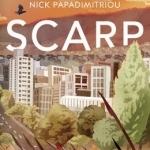
Scarp
Book
es it's difficult to define exactly what this book is: it mixes autobiography, local history,...

The Platinum Raven and Other Novellas
Book
"The Platinum Raven and other novellas" by Rohan Quine is a paperback comprising a collection of...
Darren (1599 KP) rated Starship Troopers 2: Hero of the Federation (2004) in Movies
Nov 26, 2019
Verdict: Noticeable Small Sequel
Story: Starship Troopers 2: Hero of the Federation starts straight after the first film, the humans know have the upper hand in the war against the bugs with more soldiers on the ground ready for battle. We follow a small unit that find themselves surrounded in a night assault, who seek refuge in an abandoned outpost, deep in the bug territory.
The unit finds Captain Dax (Burgi) locked away inside, while the unit gets surrounded Lei Sahara (Porch) does what she can to save her unit against her LT Dill (Monoson) who wants to get involved in paperwork and ranks, when the real enemy is a new threat they have never seen before.
Thoughts on Starship Troopers 2: Hero of the Federation
Characters – Captain VJ Dax is the officer found trapped in the outpost, once a hero of the war now a disgraced man, he is the only one that seems to know how to fight back on a more aggressive way than other soldiers are. He will demand the best from the soldiers no matter how it might see him clash with the others. Pvt Lei Sahara is one of the strongest members of the unit, she is a weak psychic that gets visions that don’t always get taken seriously, she makes the rash decision to release Dax. LT Pavlov Dill is the inexperienced soldier put in a position of power that is more interested in dealing with the ranks and orders than saving the soldier’s lives. Pvt Soda is one of the soldiers saved that needs medical attention, though she isn’t everything she looks like.
Performances – Richard Burgi is the best of the performers here, he does continue the tone of a strong military man, while most of the rest of the cast don’t reach this level. Colleen Porch does handle the serious side of the film well too.
Story – The story continues the war between humans and bugs, only this time we see the soldiers cornered in battle which will see them finding an enemy coming from within. The story here does scale back big time what we are dealing with, giving us a small unit that must battle from within one location instead of different warzones. We do move the story on from the original as we see just how humans once again understatement an enemy, as well as providing more to the bug intelligence that we are seeing. One of the problems with the story though does come from the fact we are making the story more contained, this doesn’t help on the idea of the large scale war going on, this conflicts the audience into seeing almost like a small chapter of the war over the next battle for victory.
Action/Sci-Fi – The action does continue to be large scale shooting between the humans aiming for the bugs that don’t stop, while the sci-fi is more horror based with the idea of the new bug that no human has seen before.
Settings – The film does use the outpost as the main setting, it would be a safehouse for the soldiers during the attack, though just how safe is a different question.
Special Effects – The effects while given a much small budget, don’t look bad at all, they continue to make the bugs look terrifying for anybody that comes across them.
Scene of the Movie – Stand off on the roof.
That Moment That Annoyed Me – We try to swap genres doing an alien to aliens reverse tone for the film, that just doesn’t work.
Final Thoughts – This is a sequel that doesn’t live up to the original, it does try to do something different, though it just fails to make everything hit the heights of the original.
Overall: Simple Sequel.
Story: Starship Troopers 2: Hero of the Federation starts straight after the first film, the humans know have the upper hand in the war against the bugs with more soldiers on the ground ready for battle. We follow a small unit that find themselves surrounded in a night assault, who seek refuge in an abandoned outpost, deep in the bug territory.
The unit finds Captain Dax (Burgi) locked away inside, while the unit gets surrounded Lei Sahara (Porch) does what she can to save her unit against her LT Dill (Monoson) who wants to get involved in paperwork and ranks, when the real enemy is a new threat they have never seen before.
Thoughts on Starship Troopers 2: Hero of the Federation
Characters – Captain VJ Dax is the officer found trapped in the outpost, once a hero of the war now a disgraced man, he is the only one that seems to know how to fight back on a more aggressive way than other soldiers are. He will demand the best from the soldiers no matter how it might see him clash with the others. Pvt Lei Sahara is one of the strongest members of the unit, she is a weak psychic that gets visions that don’t always get taken seriously, she makes the rash decision to release Dax. LT Pavlov Dill is the inexperienced soldier put in a position of power that is more interested in dealing with the ranks and orders than saving the soldier’s lives. Pvt Soda is one of the soldiers saved that needs medical attention, though she isn’t everything she looks like.
Performances – Richard Burgi is the best of the performers here, he does continue the tone of a strong military man, while most of the rest of the cast don’t reach this level. Colleen Porch does handle the serious side of the film well too.
Story – The story continues the war between humans and bugs, only this time we see the soldiers cornered in battle which will see them finding an enemy coming from within. The story here does scale back big time what we are dealing with, giving us a small unit that must battle from within one location instead of different warzones. We do move the story on from the original as we see just how humans once again understatement an enemy, as well as providing more to the bug intelligence that we are seeing. One of the problems with the story though does come from the fact we are making the story more contained, this doesn’t help on the idea of the large scale war going on, this conflicts the audience into seeing almost like a small chapter of the war over the next battle for victory.
Action/Sci-Fi – The action does continue to be large scale shooting between the humans aiming for the bugs that don’t stop, while the sci-fi is more horror based with the idea of the new bug that no human has seen before.
Settings – The film does use the outpost as the main setting, it would be a safehouse for the soldiers during the attack, though just how safe is a different question.
Special Effects – The effects while given a much small budget, don’t look bad at all, they continue to make the bugs look terrifying for anybody that comes across them.
Scene of the Movie – Stand off on the roof.
That Moment That Annoyed Me – We try to swap genres doing an alien to aliens reverse tone for the film, that just doesn’t work.
Final Thoughts – This is a sequel that doesn’t live up to the original, it does try to do something different, though it just fails to make everything hit the heights of the original.
Overall: Simple Sequel.
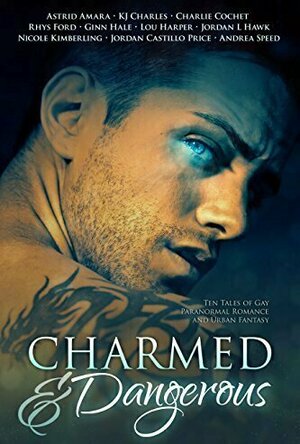
Charmed & Dangerous
Book
Magic takes many forms. From malignant hexes to love charms gone amok, you’ll find a vast array of...
Urban Fantasy Paranormal MM Romance
Heather Cranmer (2721 KP) rated Hello Again in Books
Dec 26, 2018 (Updated Dec 26, 2018)
Held my Interest (1 more)
Interesting Premise
Not enough character backstory (2 more)
Pacing all over the place
Not very paranormal
Not Very Paranormal
I love the premise of Hello Again by Stan Schatt. I'm very much into ghosts, so I knew I had to read this book. When it came up for review, I knew I had to read it. Unfortunately, this book was just okay, nothing special.
The plot for Hello Again sounded interesting enough. I loved the idea of a guy getting texts from his dead girlfriend. However, there just wasn't enough of the paranormal aspect for me which was disappointing. Personally, I wouldn't really label Hello Again as a paranormal read at all. It was fun to read about though. I kept trying to figure out who was sending the texts from Amber's phone after she died especially since they were coming from her apartment. I also found it interesting to read about Bill's cafe and how he was struggling to get the money to renew the lease. Anyway, the story did take awhile to get going before he meets his girlfriend, Amber Love, at a speed dating event. Amber is very mysterious and doesn't reveal too much of herself to Ben. I found their relationship to be a bit forced and stagnant myself. They hadn't even been on very many dates before she is blown up by a car bomb. What I found weird was that Ben never even googled Amber's name when he found out she had given him a false last name. If it were me, this day in age, I would have been googling her as soon as I had free time. I also felt like we need more information about how Ben found out about Amber's funeral. I will say that by the time this book ended, all of my questions were answered. There are no cliff hangers, and I felt like what was supposed to be the plot twist was too predictable.
I never really connected to any of the characters in Hello Again, and as much as I tried, I never really found myself caring for any of them. I would have liked a bit more backstory into Ben and Amber. I would have liked it if Ben and Amber's relationship had a chance to flourish instead of them just going on about 3 or 4 dates. I would have even liked more backstory for Josh, the psychic. It was hard to connect to these characters when I didn't know much about them. Oh, one of the characters is described as looking like a terrorist and of Middle Eastern descent. I found this to be stereotypical and thought that some readers may find this offensive.
The pacing for Hello Again starts out slow. About halfway through, the pacing does pick up, but I feel it does go too fast in many places which left scratching my head wondering what had happened. Sometimes, I had to go back to see if I missed anything which I didn't. The pacing just didn't flow very well in the second half. However, this book did hold my attention until the very end though, but I wasn't in a rush to finish it. Luckily, it's a short read.
Trigger warnings for Hello Again include some profanity, a couple of sex scenes although they aren't graphic, violence, murder, and alcoholic drinking.
All in all, Hello Again was an okay albeit disappointing read for me. I had been expecting more of a paranormal read which this really wasn't. I could never connect to the characters which left me feeling empty. However, I did find that this book held my attention on the plus side. Because it held my attention and was a short read, I would recommend Hello Again by Stan Schatt for those aged 18+ who are looking for a short read.
--
(A special thank you to Xpresso Book Tours for providing me with an eBook of Hello Again in exchange for an honest and unbiased review.)
The plot for Hello Again sounded interesting enough. I loved the idea of a guy getting texts from his dead girlfriend. However, there just wasn't enough of the paranormal aspect for me which was disappointing. Personally, I wouldn't really label Hello Again as a paranormal read at all. It was fun to read about though. I kept trying to figure out who was sending the texts from Amber's phone after she died especially since they were coming from her apartment. I also found it interesting to read about Bill's cafe and how he was struggling to get the money to renew the lease. Anyway, the story did take awhile to get going before he meets his girlfriend, Amber Love, at a speed dating event. Amber is very mysterious and doesn't reveal too much of herself to Ben. I found their relationship to be a bit forced and stagnant myself. They hadn't even been on very many dates before she is blown up by a car bomb. What I found weird was that Ben never even googled Amber's name when he found out she had given him a false last name. If it were me, this day in age, I would have been googling her as soon as I had free time. I also felt like we need more information about how Ben found out about Amber's funeral. I will say that by the time this book ended, all of my questions were answered. There are no cliff hangers, and I felt like what was supposed to be the plot twist was too predictable.
I never really connected to any of the characters in Hello Again, and as much as I tried, I never really found myself caring for any of them. I would have liked a bit more backstory into Ben and Amber. I would have liked it if Ben and Amber's relationship had a chance to flourish instead of them just going on about 3 or 4 dates. I would have even liked more backstory for Josh, the psychic. It was hard to connect to these characters when I didn't know much about them. Oh, one of the characters is described as looking like a terrorist and of Middle Eastern descent. I found this to be stereotypical and thought that some readers may find this offensive.
The pacing for Hello Again starts out slow. About halfway through, the pacing does pick up, but I feel it does go too fast in many places which left scratching my head wondering what had happened. Sometimes, I had to go back to see if I missed anything which I didn't. The pacing just didn't flow very well in the second half. However, this book did hold my attention until the very end though, but I wasn't in a rush to finish it. Luckily, it's a short read.
Trigger warnings for Hello Again include some profanity, a couple of sex scenes although they aren't graphic, violence, murder, and alcoholic drinking.
All in all, Hello Again was an okay albeit disappointing read for me. I had been expecting more of a paranormal read which this really wasn't. I could never connect to the characters which left me feeling empty. However, I did find that this book held my attention on the plus side. Because it held my attention and was a short read, I would recommend Hello Again by Stan Schatt for those aged 18+ who are looking for a short read.
--
(A special thank you to Xpresso Book Tours for providing me with an eBook of Hello Again in exchange for an honest and unbiased review.)
Darren (1599 KP) rated The Dark Within (2019) in Movies
Jun 21, 2019
Story: The Dark Within starts after an experiment goes wrong leading to Marcus (Flannery) growing up facing troubled visions and illnesses, in search for answers his doctor, Dr Norton (Styles) is trying to find answers to his past, which sends him to his parent’s cabin in a remote woodland area.
In the cabin the memories come running back to Marcus through visions and he is joined by his ex-girlfriend Sarah (Carelli) that is willing to help him put his life back together, but the truth itself will be too shocking for Marcus to handle.
Thoughts on The Dark Within
Characters – Marcus is a disturbed man with unknown psychic abilities, he spends times in therapy trying to piece together the pieces of his past to understand just what happened to him as a child, he has made himself distant from his loved ones and in a final attempt to unlock the truth, he heads to his parent’s old cabin, which soon starts to unlock the shocking truth about his childhood, as he starts to lose sense of reality. Sarah is the ex-girlfriend that has a restraining order against Marcus, she decides to put that aside to help Marcus find answers, being the only person that will be there for him. Dr Norton is the lady that is trying to help Marcus understand his past, she suggests the cabin as a location in which could hold the answers he requires. Andrew is the father of Marcus, the man that was performing the experiment which saw him leave Marcus as a young child, he knew the value of his idea and the consequences once things started to go wrong.
Performances – Paul Flannery in the leading role is great to watch, he gives us a performance of a man that is losing sense of his reality, with moments of desperate hope, while others are filled with fear and moments where he tries to remain calm, he pulls us through the film with his performance that is needed to help carry the film. Kendra Carelli does get time to shine, but like most of the supporting cast they are only used when required and make the most of their screen time.
Story – The story here follows a man that has been losing sense of reality because of a childhood trauma, he goes in search for answers that will only leave him feeling shocked and needing to battle evil. One of the easiest ways to describe the story at times would be like watching ‘The Evil Dead’ one man trapped in a cabin trying to remain sane, while a host of different paranormal incidents come in his direction, this story does go deeper than just that though, because we get involved in a scientific experiment which has caused the events to unfold. There could be one side of the story which does get overused, which does frustrate, though it does only add to the unknown about what is going on. For a story that does revolve around the unknown mindset, this is one that does keep you guessing and does make you question everything you are seeing.
Horror – The horror in the film does comes from the unknown hauntings Marcus is experiencing, each one of these become more shocking as the events of the film do unfold, with moments that are meant to disturb along the way.
Settings – The film does use the one location for the setting, which is the remote cabin in the woods, which does create the isolation required for the film.
Special Effects – The effects do show the budget the film is working with, they do work well for the film, when we get to the creature it will leave people feeling scared by the end of the film.
Scene of the Movie – The creature’s first appearance.
That Moment That Annoyed Me – The Evil Dead laugh.
Final Thoughts – This is an entertaining shock filled horror that is very enjoyable, we get a story that will keep you guessing and a creature that could strike the fear into the audience.
Overall: Horror to enjoy.
https://moviesreview101.com/2019/06/17/the-dark-within-2019/
In the cabin the memories come running back to Marcus through visions and he is joined by his ex-girlfriend Sarah (Carelli) that is willing to help him put his life back together, but the truth itself will be too shocking for Marcus to handle.
Thoughts on The Dark Within
Characters – Marcus is a disturbed man with unknown psychic abilities, he spends times in therapy trying to piece together the pieces of his past to understand just what happened to him as a child, he has made himself distant from his loved ones and in a final attempt to unlock the truth, he heads to his parent’s old cabin, which soon starts to unlock the shocking truth about his childhood, as he starts to lose sense of reality. Sarah is the ex-girlfriend that has a restraining order against Marcus, she decides to put that aside to help Marcus find answers, being the only person that will be there for him. Dr Norton is the lady that is trying to help Marcus understand his past, she suggests the cabin as a location in which could hold the answers he requires. Andrew is the father of Marcus, the man that was performing the experiment which saw him leave Marcus as a young child, he knew the value of his idea and the consequences once things started to go wrong.
Performances – Paul Flannery in the leading role is great to watch, he gives us a performance of a man that is losing sense of his reality, with moments of desperate hope, while others are filled with fear and moments where he tries to remain calm, he pulls us through the film with his performance that is needed to help carry the film. Kendra Carelli does get time to shine, but like most of the supporting cast they are only used when required and make the most of their screen time.
Story – The story here follows a man that has been losing sense of reality because of a childhood trauma, he goes in search for answers that will only leave him feeling shocked and needing to battle evil. One of the easiest ways to describe the story at times would be like watching ‘The Evil Dead’ one man trapped in a cabin trying to remain sane, while a host of different paranormal incidents come in his direction, this story does go deeper than just that though, because we get involved in a scientific experiment which has caused the events to unfold. There could be one side of the story which does get overused, which does frustrate, though it does only add to the unknown about what is going on. For a story that does revolve around the unknown mindset, this is one that does keep you guessing and does make you question everything you are seeing.
Horror – The horror in the film does comes from the unknown hauntings Marcus is experiencing, each one of these become more shocking as the events of the film do unfold, with moments that are meant to disturb along the way.
Settings – The film does use the one location for the setting, which is the remote cabin in the woods, which does create the isolation required for the film.
Special Effects – The effects do show the budget the film is working with, they do work well for the film, when we get to the creature it will leave people feeling scared by the end of the film.
Scene of the Movie – The creature’s first appearance.
That Moment That Annoyed Me – The Evil Dead laugh.
Final Thoughts – This is an entertaining shock filled horror that is very enjoyable, we get a story that will keep you guessing and a creature that could strike the fear into the audience.
Overall: Horror to enjoy.
https://moviesreview101.com/2019/06/17/the-dark-within-2019/
Hadley (567 KP) rated Soul Drinker in Books
Jul 25, 2020
The writing (2 more)
No character development
No ending
One of the classic horror tropes is Heaven versus Hell, angels versus demons, good versus evil (like a boogeyman versus an innocent child, or a killer versus a group of teenagers, or even an evil spirit versus an exorcist) and we always know how it's going to end: good triumphs evil, every time. Some of the most well known films with this trope are Constantine (2005), the Exorcist (1973) and more recently, Stephen King's IT : Chapter 2 (2019).
That, along with a little romance, mystery, and historical elements make up this novel that features three main characters who are stuck in a struggle between good and evil while having to face mistakes from the past.
Welcome to the hellish world of Soul Drinker by newcomer, Matthew Yard.
Deep description is what makes up Yard's storytelling, so much so that the book is extremely hard to read. Only 132 pages long, Yard spends most paragraphs describing one single thing in many different ways, such as a young woman's hair, which only needs one sentence to tell such a detail, but instead, took an entire paragraph.
During an ancient civilization, a deity appeared named Destroyer, it found a way to break through the boundaries that separates realms and universes - - - finding our realm, Destroyer leaves his son Luther to build powerful followings through cults run by Pagans.
The novel's villain, Luther, isn't present enough to feel like a real threat for the reader. And the three main characters, other than their physical descriptions, are lifeless because of the extreme lack of character development.
Our main character, Devin, is a college student who constantly has nightmares of his best friend's murder. He also lives at house in the woods which he has no idea how he attained it and this is never explained. After Devin and a classmate named Vic have an encounter with a supernatural cloud, they end up at this house, where readers find out that Devin isn't the only one who has been having nightmares.
Vic is a beautiful, young woman, who Devin seems to be enamoured with, but she is still busy getting over her first love. A few chapters in, readers get flashbacks of Vic's father and mother before she was born. Vic's father was also haunted by this supernatural cloud, which seems to have had a tighter grip on him than Vic - - - her father's flashbacks are the most interesting part of this story.
Vic's father, Jacob, is fast asleep next to his wife when a giant face wakes him up, telling him that there is work to do. Jacob follows the face out into the hallway, when it begins to sway, as if through the eyes of a drunk. Jacob fights the urge to continue to the stairs, wanting to turn back and protect his sleeping wife.
A little while later, we find out that Jacob is psychic: he can see the dead and/or the past. But for anymore development on that interesting piece of information, readers get one glimpse of what Jacob sees - - - and that's it. Jacob's wife, Nina, is an even flatter character, which we only get to see in bed either asleep or waking up. Even Jacob's mental and spiritual fight with the 'face' is disappointingly short with no real tension, no climax, or feelings of betrayal when something finally happens in the end of that scene.
Love, the supernatural, and Pagan cults are what make up the plot of this book. The story jumps between Devin, Vic and Jacob, but the story gets caught up in moments that shouldn't be more than a paragraph, which caused me to become bored with the story. And Yard's writing made this book read like a fan fiction: a lot of inconsistencies throughout, tons of misspellings, and a major overuse of the same words, sometimes even in the same sentence.
Unfortunately, this book was almost unreadable, and the heavy descriptions were extremely off-putting, as was the end of the story- - - the book ended suddenly, and with no sequel in sight. I can't recommend this book to anyone.
That, along with a little romance, mystery, and historical elements make up this novel that features three main characters who are stuck in a struggle between good and evil while having to face mistakes from the past.
Welcome to the hellish world of Soul Drinker by newcomer, Matthew Yard.
Deep description is what makes up Yard's storytelling, so much so that the book is extremely hard to read. Only 132 pages long, Yard spends most paragraphs describing one single thing in many different ways, such as a young woman's hair, which only needs one sentence to tell such a detail, but instead, took an entire paragraph.
During an ancient civilization, a deity appeared named Destroyer, it found a way to break through the boundaries that separates realms and universes - - - finding our realm, Destroyer leaves his son Luther to build powerful followings through cults run by Pagans.
The novel's villain, Luther, isn't present enough to feel like a real threat for the reader. And the three main characters, other than their physical descriptions, are lifeless because of the extreme lack of character development.
Our main character, Devin, is a college student who constantly has nightmares of his best friend's murder. He also lives at house in the woods which he has no idea how he attained it and this is never explained. After Devin and a classmate named Vic have an encounter with a supernatural cloud, they end up at this house, where readers find out that Devin isn't the only one who has been having nightmares.
Vic is a beautiful, young woman, who Devin seems to be enamoured with, but she is still busy getting over her first love. A few chapters in, readers get flashbacks of Vic's father and mother before she was born. Vic's father was also haunted by this supernatural cloud, which seems to have had a tighter grip on him than Vic - - - her father's flashbacks are the most interesting part of this story.
Vic's father, Jacob, is fast asleep next to his wife when a giant face wakes him up, telling him that there is work to do. Jacob follows the face out into the hallway, when it begins to sway, as if through the eyes of a drunk. Jacob fights the urge to continue to the stairs, wanting to turn back and protect his sleeping wife.
A little while later, we find out that Jacob is psychic: he can see the dead and/or the past. But for anymore development on that interesting piece of information, readers get one glimpse of what Jacob sees - - - and that's it. Jacob's wife, Nina, is an even flatter character, which we only get to see in bed either asleep or waking up. Even Jacob's mental and spiritual fight with the 'face' is disappointingly short with no real tension, no climax, or feelings of betrayal when something finally happens in the end of that scene.
Love, the supernatural, and Pagan cults are what make up the plot of this book. The story jumps between Devin, Vic and Jacob, but the story gets caught up in moments that shouldn't be more than a paragraph, which caused me to become bored with the story. And Yard's writing made this book read like a fan fiction: a lot of inconsistencies throughout, tons of misspellings, and a major overuse of the same words, sometimes even in the same sentence.
Unfortunately, this book was almost unreadable, and the heavy descriptions were extremely off-putting, as was the end of the story- - - the book ended suddenly, and with no sequel in sight. I can't recommend this book to anyone.
